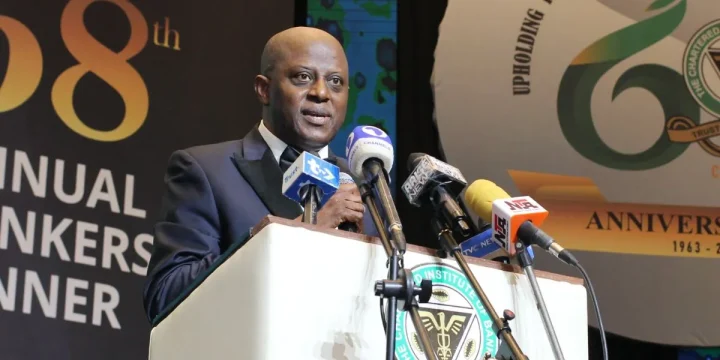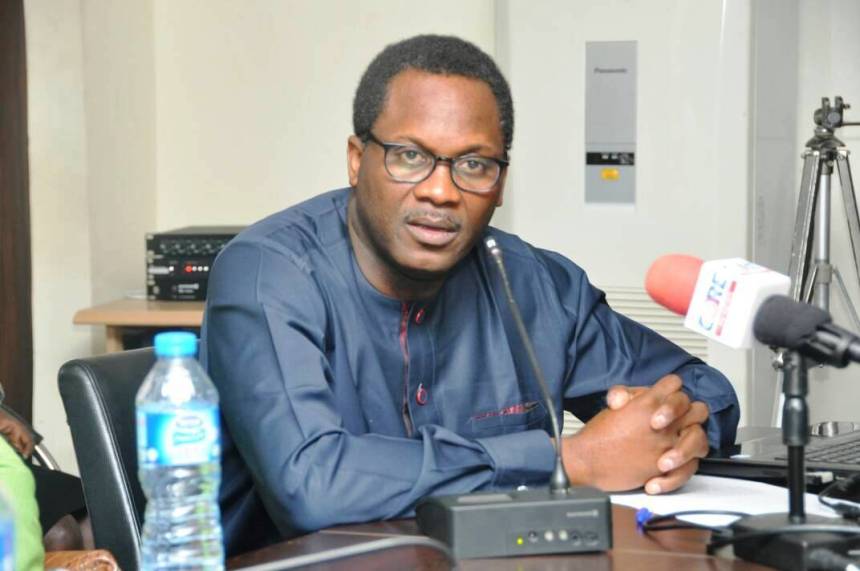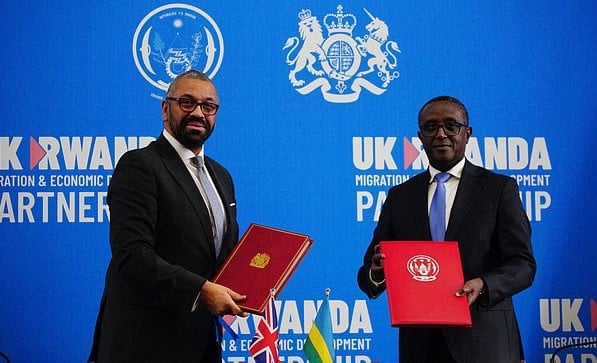The Central Bank of Nigeria (CBN) says it will ensure that the outstanding foreign exchange (FX) liabilities will be cleared in the next few days.
Olayemi Cardoso, governor of the CBN, spoke at an investors call organised by the Nigerian Exchange Group (NGX) alongside the CBN team on Thursday.
Cardoso reiterated the regulator’s commitment to addressing distortions in the foreign exchange market, assuring foreign portfolio investors of the bank’s resolve to prioritise developing a functional FX market with robust supply.
On Tuesday, the CBN governor said out of the $2.2 billion outstanding FX commitments, $400 million was recently paid.
Advertisement
Based on calculations from previously cleared FX liabilities announced by the CBN, $1.8 billion is now remaining.
Speaking at the meeting on Thursday, Cardoso said the remaining backlog, linked to five banks, would be cleared soon.
“Basically what we have done with those is we have paid as much as we can to the point where we have cleared the backlog of all the banks to save five,” Cardoso said.
Advertisement
“All the bank’s genuine and verifiable backlogs have been cleared save five.
“We are confident that we will shortly be in a position where the whole issue of forwards would be behind us. I would say in the next few days we should be in a position where the balance of the five would have been put behind us.”
CBN also reiterated that the naira is undervalued, adding that the current FX pressures are linked to panic, which is driving hurried monetisation of assets.
Cardoso said the apex bank expects the local currency to stabilise in the near term, supported by the recent action of the Nigerian National Petroleum Company (NNPC) Limited to move some of its accounts to the CBN.
Advertisement
This stability, the regulator said, is also expected to be supported by foreign inflows ($2 billion year-to-date vs $3 billion for the whole of 2023).
OMO FREQUENCY TO BE INCREASED
Further speaking, the CBN pledged to increase the frequency of the open market operation (OMO).
The regulator added that the interest rate trajectory is “biased to the upside” and guided to higher stop rates at coming OMO and national treasury bills (NTB) auctions.
Advertisement
Cardoso noted that the stop rates are expected to edge closer to the monetary policy rate (MPR) of 22.75 percent.
He said the CBN plans to increase OMO frequency and volumes “to mop up liquidity and provide investment opportunities for FPIs”.
Advertisement
On inflation, Cardoso said the financial institution will stop at nothing to tame the current inflation to ensure price stability.
According to the CBN governor, the apex bank has a clear understanding of the drivers of inflation, which includes currency pressures.
Advertisement
He assured that the bank will supply and intervene in the market whenever there are distortions, adding that the CBN would work to ensure ample liquidity for the free entry and exit of foreign portfolio investors.
On the cash reserve ratio (CRR) pegged at 45 percent, Cardoso said some banks will get refunds under the new CRR regime, while others will be required to make payments.
Advertisement
He said the net effect of the new CRR is about N5 trillion (debit to the system), however, the mop-up will be done gradually to avoid causing shock to the financial system.
‘CBN’S EFFORTS WILL BOOST INVESTMENT’
Commenting on the outcome of the meeting, CardinalStone, an investment management firm, said the CBN’s recent efforts to restore market confidence and enhance communication with investors “are likely to boost the investment case of Nigeria”.
“Specifically, efforts to clear the balance of existing backlogs, sanitize the FX ecosystem, and improve carry trade could attract more foreign interest,” the company said.
“We see scope for higher-for-longer interest rates in the domestic market, which could drive fixed-income fund managers into a short-duration strategy.”
CardinalStone, however, said in the equities space, higher interest rates could depress valuations but savvy investors could prioritise allocations to stocks with strong positive earnings correlation to interest rates (such as banks), high dividend income, and low leverage.
Add a comment






